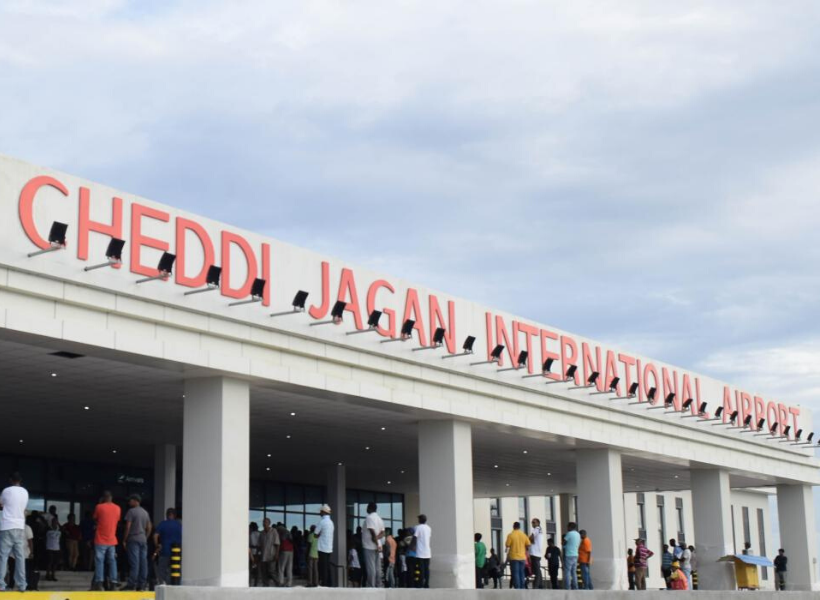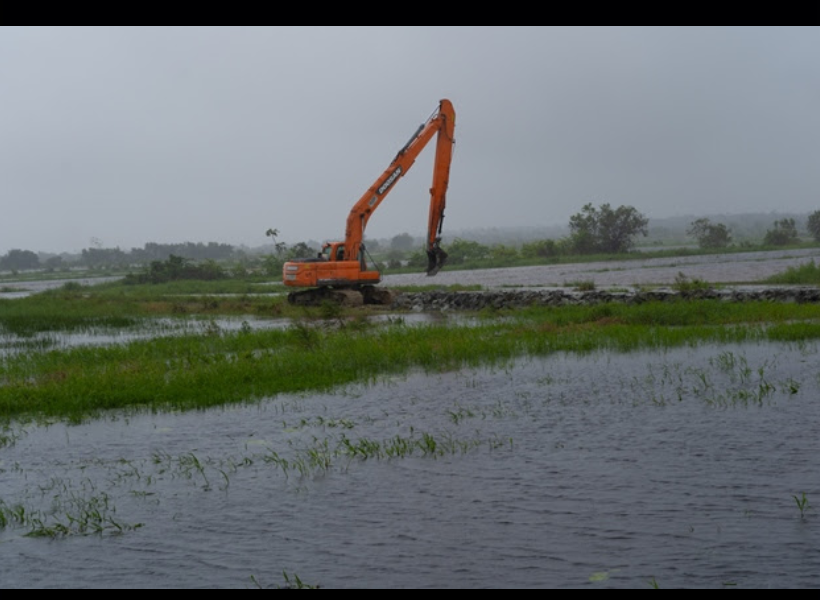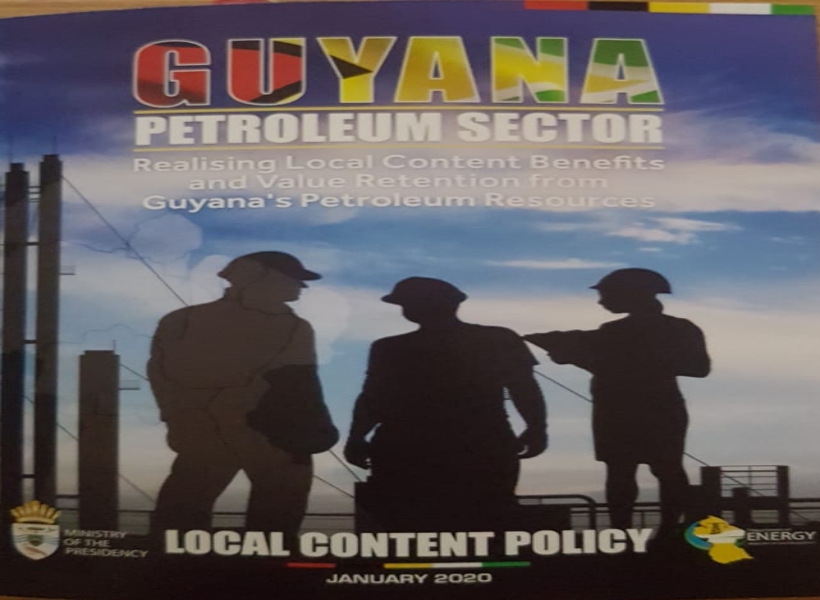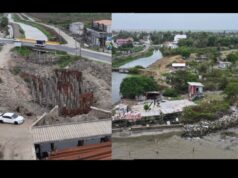The Local Content Policy precedes an overall petroleum sector policy for Local Content and shall be updated from time to time to be aligned with a maturing petroleum sector and with evolving national development strategies and goals, the Department of Energy says.
According to the policy, it does not yet address directly mid and downstream petroleum sector opportunities; nor other policies issues relating to the upstream petroleum sector, such as health, safety, security, environment, community impacts, tax and fiscal matters. It also does not address other petroleum-related national issues, such as national development and planning.
According to the document, because of the scale of the emerging discoveries in the upstream petroleum sector in Guyana, realising the best chance for Guyanese persons and suppliers to access opportunities requires the matter of Local Content and value retention to receive special attention by Government now.
Section 3 of the policy provides details on policy implementation, including the structure and timing of annual local content plans; templates to estimate and report local employment and contracting and procurement opportunities; minimum tender procedures to give full and adequate opportunity to Guyanese suppliers; the division of roles among the government, operators and contractors; and guidance for local skills and supplier capacity development.
According to the policy, its goal is to achieve the active participation and development of Guyanese persons and suppliers in the petroleum sector and to maximise benefits and retain value from expenditure in the sector on labour, goods and services for Guyanese industry, the economy and wider Society.
The upstream sector includes searching for potential underground or underwater crude oil and natural gas fields, drilling exploratory wells, and subsequently drilling and operating the wells that recover and bring the crude oil or raw natural gas to the surface.
Downstream operations are the processes involved in converting oil and gas into the finished product. These include refining crude oil into gasoline, natural gas liquids, diesel, and a variety of other energy sources.
The policy also outlines several objectives, which include a balanced alignment between the Government of Guyana policy goals of stimulating local economic benefits, maintaining a positive investment climate, and assuring the optimal raising of national revenues for economic transformation, whilst maintaining consistency with Guyana International and regional trade and economic cooperation obligations.
Another objective is to promote the education, inclusion and advancement of Guyanese persons with the expertise and experience required to participate in the petroleum industry, and to achieve participation of Guyanese persons in employment opportunities and Guyanese suppliers in contracting and procurement opportunities within the petroleum sector within and outside of Guyana.
Further, the policy aims at localising the Supply chains in procuring goods and services that support the petroleum industry by providing opportunities for Guyanese persons and suppliers whilst concurrently bring efficiency and cost benefits to the sector in Guyana.
Also, the policy aims to enhance the capacity of Guyanese persons and suppliers and the Guyanese public and private education regulatory institutions, to align with good industry standards in the petroleum sector, thereby to enhance local competitiveness.
Additionally, the policy looks to the utilisation of opportunities presented by international companies operating in Guyana to grow the competencies of Guyanese oil and gas professionals, and goods and services companies down multiple supply chains to becoming world-class and internationally competitive with local suppliers developing export potential.









